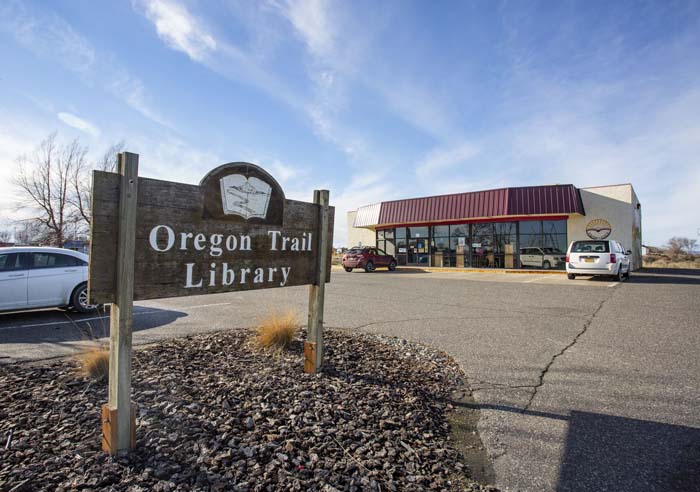Libraries supply patrons with internet during the pandemic
Published 6:00 am Monday, February 1, 2021

- Twenty rural Oregon libraries, including the library in Boardman, applied to be a part of a program called Step It Up, and 10 of those were randomly selected to participate in the Change Club cohort. Boardman's library is one of the 10.
By the time the COVID-19 pandemic had started, Kathy Street already knew how crucial internet access could be.
Street, the director for the Oregon Trail Library District in Morrow County, had moved during the previous year into a new home, located on a new street with three other newly constructed homes inside Boardman. When she tried calling local internet providers to purchase service, she said, she was shocked when they told her that the infrastructure didn’t exist to serve those four homes with internet or landline phone service.
“That took six months, so we were one of those people sitting in the parking lot (of the library) on weekends to Facetime with our grandkids,” she said.
Some law enforcement officials and neighbors of the Oregon Trail Library District’s three branches (Boardman, Irrigon and Heppner) have pushed back on the policy of 24-hour access to Wi-Fi in the libraries’ parking lots, Street said, complaining about people loitering there. But given her experience of not having home internet access for six months, she felt it was important for people in those small communities to have round-the-clock access to an internet connection.
She didn’t think that was enough, however. So, when Lamb Weston gave the library district enterprise zone funds, the library district used them to purchase 20 Wi-Fi hotspots in October 2019 and began allowing library patrons to check them out for three weeks at a time before moving back to the end of the waiting list.
The length of the waiting list shot up as soon as the pandemic hit. Parents called libraries, desperate to secure one for their children’s learning. Others needed it to work from home.
“One lady was crying,” Street said. “Her employer had sent her home with a laptop, and she had assumed it came with internet access, but it didn’t.”
Street had to tell her that it would probably be weeks before it would be her turn to check out a hotspot, but in the meantime, she could try working from her car in the library’s parking lot.
Since then, the library district now has 80 hotspots for checkout, and during an interview on Monday, Jan. 25, Street said there were a few available that day that had not yet been checked out. She said even for people who have internet access at home, it can be convenient to check out a hotspot for traveling, or boosting the number of devices a home can accommodate when people are visiting.
The library district pays a $25 a month service charge for each hotspot, which comes from T-Mobile and provides Wi-Fi internet service anywhere that has T-Mobile cellphone reception. People with a library card can check them out for free.
Street said the library district’s board recently had a discussion about the cost, with some people questioning whether the library should be subsidizing internet access for community members. But she said others pushed back, pointing out the library is a community service that also allows people to check out books for free despite the fact they may be able to afford to purchase books to read.
Several other libraries in the area also allow patrons to check out Wi-Fi hotspots, albeit on a smaller scale.
Pendleton Public Library Director Jennifer Costley said in an email the library began checking out internet hotspots from T-Mobile about a year ago, and has five. The hotspots and Google Chromebooks the library also has on hand can be checked out for seven days at a time.
“We have not had any trouble with them so far and the patrons seem to love the opportunity to borrow the internet,” she said.
In addition to personal use by patrons, Costley said they have also come in handy in community outreach situations, such as allowing vendors at a fundraiser bazaar use them.
The Umatilla Public Library has two T-Mobile hotspots it checks out as well, after patrons sign an agreement acknowledging the hotspot, charging cord and box will cost $65 to replace if they lose it. City Manager David Stockdale said in an email on Tuesday, Jan. 26, that both hotspots were checked out that day, but overall they have not seen a big problem with being short on units.
“If they become more popular, we will order more,” he said.





